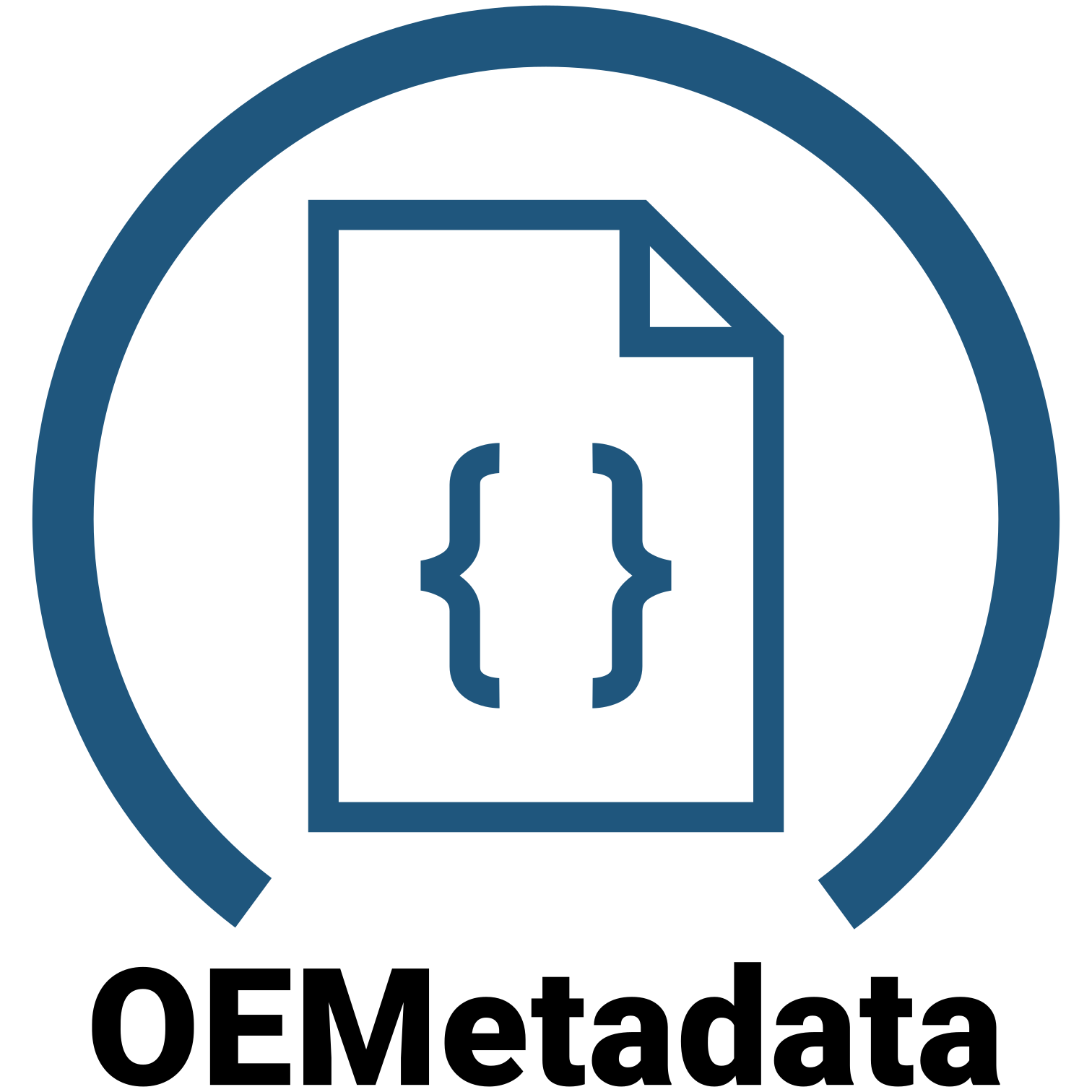| Workflow | Badge |
|---|---|
| Automated tests | |
| PyPI Publish | |
| Docs |
Open Energy Metadata (OEMetadata) is an energy metadata standard including a template, examples and a metadata schema. It is an extensive set of metadata based on the tabular data package specifications and the FAIR principles. The metadata contains multiple fields (keys) in a nested JSON structure.
You can find the latest version right here:
- template.json contains an empty metadata string
- metadata_key_description.md contains a description of each metadata key
- example.json contains a basic metadata example
This repository is licensed under MIT License (MIT)
The oemetadata is licensed under Creative Commons Zero v1.0 Universal
The oemetadata example and oemetadata template are licensed under Creative Commons Zero v1.0 Universal
pip install oemetadata
from metadata.latest.example import OEMETADATA_LATEST_EXAMPLE
print(OEMETADATA_LATEST_EXAMPLE)
from metadata.latest.schema import OEMETADATA_LATEST_SCHEMA
print(OEMETADATA_LATEST_SCHEMA)
from metadata.latest.template import OEMETADATA_LATEST_TEMPLATE
print(OEMETADATA_LATEST_TEMPLATE)
For further contributing infos and conventions see: CONTRIBUTING.md
See the complete instructions in the RELEASE_PROCEDURE.
- Update the version in the setup.py file to reflect the new version number.
- Follow these steps to utilize the release automation workflow:
Testing Stage:
- Create a new branch named "release/branch-name" to test your changes.
- Make sure all your changes are included in a single commit (until a more efficient workflow is determined).
- The release automation workflow is automatically executed, which will attempt to upload the package to the test.PyPI repository.
- If the upload is successful, the workflow will fail on subsequent attempts (as it should only be uploaded once successfully).
Deployment Stage:
- Merge the release branch into the "master" or "main" branch, depending on your repository's default branch.
- Publish a release on GitHub, documenting the changes made in this version.
- This action will trigger the automated workflow to release the new version to the official PyPI repository.
Manual steps are:
python3 setup.py sdist bdist_wheel
twine upload dist/*
